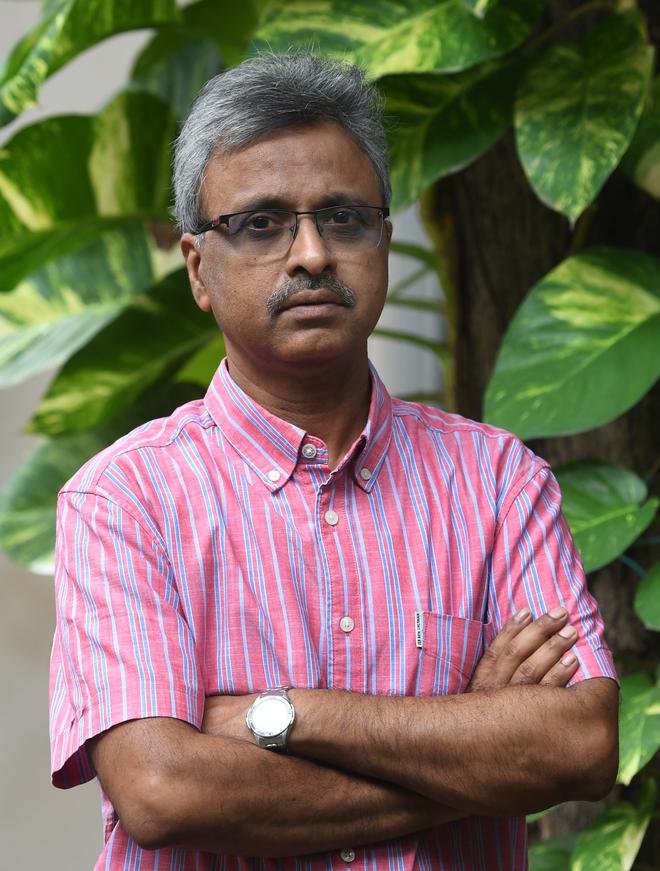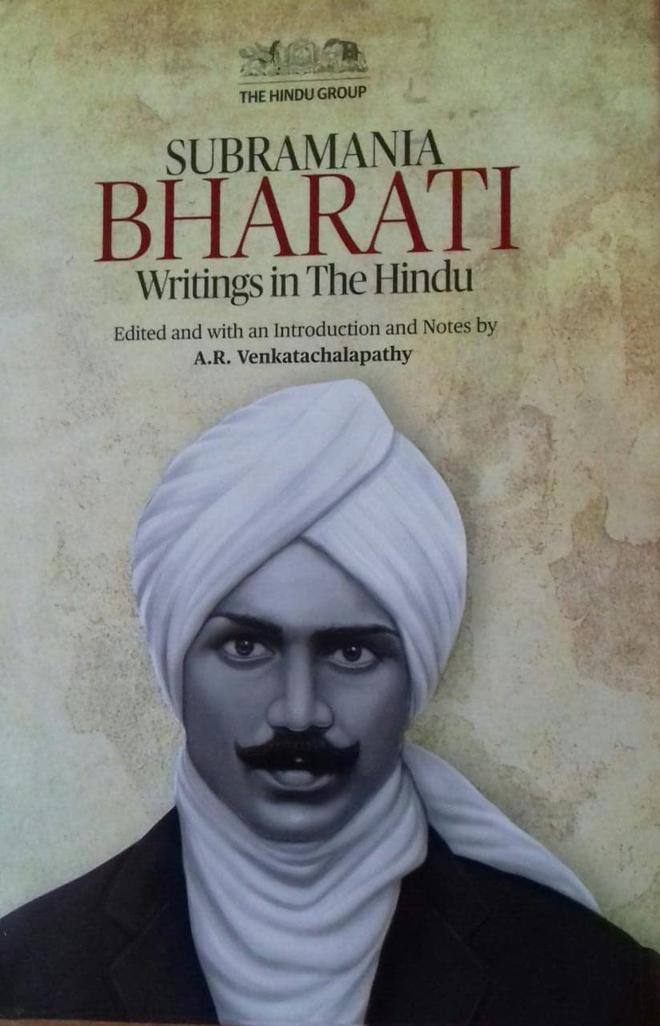He is probably the most quoted poet of the 20th century in Tamil Nadu, and is often appropriated by political parties left, right and centre, as they see fit. Subramania Bharati (1882–1921) held strong views on many of the burning political questions of the day and was a fierce advocate of social reform. As a 22-year-old rookie journalist, he wrote to The Hindu: “Is it doubted in any quarter that, in England, a cobbler-boy with necessary merit finds his path clear to the Premiership? And is it not treason in India to believe a Sudra (not to speak of Panchama) with an unparalleled knowledge of Sanskrit scripture and with exceptional goodness and piety can ever aspire to the seat of Sringeri?”

A.R. Venkatachalapathy, historian, and professor at the Madras Institute of Development Studies, who has edited Subramania Bharati: Writings in The Hindu, argues that Bharati’s political position in the aftermath of the brutal crushing of the Swadeshi movement was nowhere more clearly expressed than in these writings. The Hindu was the only newspaper that gave him space to express his views in the dark period between 1910 and 1913, when many publications were banned by the British.
Though most of his writings were in the form of letters to the editor, Bharati’s contributions began in 1904 and continued until 1919, two years before his premature death. September 11 marks the 102nd death anniversary of the poet. Edited excerpts from an interview with Venkatachalapathy:

What is the significance of the compilation of Bharati’s writings in a daily?
Bharati is arguably the most important cultural figure of 20th century Tamil Nadu. But he is known primarily as a Tamil poet who wrote on nationalist themes. His published writings in English are limited. In this context, what he wrote in The Hindu is of considerable value. They throw new light on his evolving political position, which cannot be discerned from his other writings.
As we know, Bharati exiled himself from British India after an arrest warrant was issued against him, and sought refuge in French-ruled Pondicherry from mid-1908. Between early 1910, when the British government brutally crushed the Swadeshi movement, and 1913, when he wrote in Subramania Siva’s Gnanabhanu, The Hindu was the sole avenue to express his views, especially political ones. Even when A. Rangaswami Iyengar invited him to contribute to Tamil daily Swadesamitran in 1915, Bharati was expressly prohibited from expressing his political opinions. This definitely redounds to the credit of The Hindu and its editor, S. Kasturiranga Iyengar.
Can you give specific examples?
Much of the views that Bharati expressed in English in The Hindu were never articulated in Tamil. His protests against the banning of his books and the nasty surveillance that he was subjected to in Pondicherry are chronicled only in The Hindu.
His evolving political stance to British repression can be seen only in these writings. For instance, reacting to the Lord Chancellor of England, he writes, “This remark strikes me as a piece of national insult levelled at us because the man was pretty sure that there was no harm in insulting a disarmed and subject nation.” The italics is Bharati’s, and it indicates his unease with purely constitutional methods. But as World War I broke out, standing by the British, he called himself “a representative of the constitutional Nationalist Party in Southern India”.
Later, following the murder of Robert William Ashe, the collector of Tirunelveli, he tries to defend himself from the accusation that he advocated violent methods: “We want Home Rule. We advocate no violence. We shall always adopt peaceful and legal methods.”
His letter to Ramsay MacDonald, the British Labour Party leader who was then touring India, complaining about ‘Police Rule in India’, which he published in The Hindu, speaks for his courage. His arguments, one could say, are of more than just historical value and have a contemporary ring. He strongly advocated the rights of citizens, right to privacy, right to live with dignity without being hounded by the police. He writes of how “even illiterate Brahmin ladies, 50 years old, are considered fit objects of police surveillance”.
What about Bharati’s social views?
Bharati was a sound critic of conservatism and orthodoxy within the Hindu religion. His criticism of professor K. Sundararama Iyer, whom he described as “the staunchest advocate of orthodoxy in Southern India”, makes for interesting reading even today. Arguing against invoking personal faith and religion for political ends, he said, “Each man’s tuft and dinner is his own private concern.” His writings also tell us of his disagreements with the Theosophical Society and Annie Besant, even though he developed a better personal relationship with her in later years.
Can we say that the Pondicherry period was crucial to his creative work?
Bharati was 39 when he died. When he went into exile, he was 26. He spent 11 years in Pondicherry and lived only three years after. His most productive years were spent there. But Pondicherry was claustrophobic and the political situation was uncertain. The British police was out to get him, and the small town swarmed with policemen, spies and informers. The Pondicherry years could not have been happy.
There is an opinion that Bharati, instead of going to Pondicherry, could have stayed back and faced prosecution? Can you speculate on what would have been the outcome if he had done so?
As early as 1928, S.G. Ramanujulu Naidu, Bharati’s friend and famed journalist, criticised him for making a scapegoat of the de jure editor of the journal India, who was arrested, while Bharati himself went into exile.
It is not for a historian to make moral judgements. If the jail experience of Bharati’s friend V.O. Chidambaram Pillai is anything to go by, he would have barely survived the rigours of prison life. Bharati would have been a martyr rather than one of the greatest modern poets of India.
kolappan.b@thehindu.co.in







